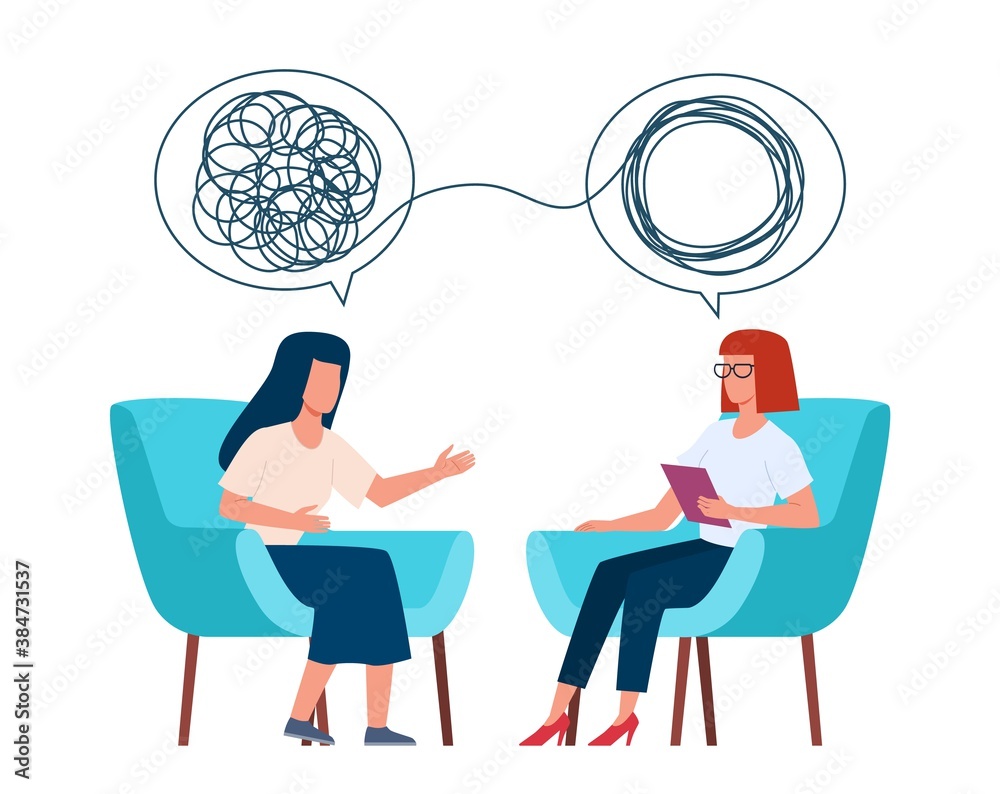Why the Best Psychologist in Delhi Can Transform Your Psychological Wellness
Why the Best Psychologist in Delhi Can Transform Your Psychological Wellness
Blog Article
Psych Therapy: A Comprehensive Overview to Techniques and Results

Cognitive-Behavioral Treatment
Cognitive-Behavioral Treatment (CBT) is a commonly utilized psychotherapeutic strategy that concentrates on determining and customizing dysfunctional thinking and habits patterns. Created in the 1960s by Aaron T. Beck, CBT combines cognitive and behavioral concepts to resolve different psychological health and wellness issues, including anxiety, stress and anxiety, and stress-related disorders. The property of CBT is that maladaptive thoughts add to emotional distress and maladaptive actions. By restructuring these ideas, people can accomplish significant enhancements in their emotional wellness and everyday functioning.
CBT is defined by its structured, ambitious nature. Treatment normally involves a joint process in between the specialist and customer, where certain troubles are identified, and functional techniques are developed to resolve them. Techniques such as cognitive restructuring, direct exposure therapy, and skill-building exercises are commonly employed. Cognitive restructuring involves difficult and altering unfavorable thought patterns, while direct exposure treatment aims to decrease anxiety and stress and anxiety with steady exposure to feared scenarios or objects.
Evidence-based study sustains the efficacy of CBT for a large range of psychological problems - Best Psychologist in Delhi. Its focus on skill acquisition and self-help strategies empowers customers to continue progression independently after therapy concludes. The adaptability and effectiveness of CBT have actually made it a cornerstone in contemporary psychotherapeutic technique
Psychodynamic Approaches
Rooted in the very early theories of Sigmund Freud, psychodynamic techniques focus on checking out the unconscious mind and its influence on actions and emotions. These methods intend to reveal hidden ideas and sensations that may be driving maladaptive habits and mental distress. Central to this technique is the concept of inner dispute, usually stemming from unsettled past experiences, specifically those from youth.
Therapists using psychodynamic strategies utilize a number of crucial approaches, including cost-free association, where patients are motivated to talk easily to reveal subconscious product, and dream analysis, which translates the hidden material of desires. Additionally, the exploration of transfer and countertransference dynamics within the healing partnership is crucial. These interactions can offer understandings into the person's internal globe and relational patterns.
Psychodynamic therapy is commonly longer-term compared to other methods, offering a deep and detailed understanding of the individual's subconscious. Research suggests that it can be particularly efficient for complicated mental wellness issues, such as personality problems and chronic clinical depression. By promoting self-awareness and psychological insight, psychodynamic therapy looks for to bring unconscious product to consciousness, allowing people to accomplish long-term and purposeful adjustment in their lives.
Humanistic Techniques
Building on the structures laid by psychodynamic techniques, humanistic strategies provide a distinctive viewpoint focused on individual possible and self-actualization. Coming from in the Visit Website mid-20th century, these strategies focus on the intrinsic goodness and growth possibility of individuals, highlighting an all natural view of human experience. Secret figures such as Carl Rogers and Abraham Maslow have significantly influenced this therapeutic approach, which includes approaches like client-centered treatment and Gestalt treatment.
Client-centered therapy, created by Rogers, plays an essential duty in humanistic techniques. The therapist's role is even more of a facilitator than an authority, motivating customers to harness their internal sources for healing.
Gestalt treatment, one more crucial humanistic technique, highlights existing minute awareness and the integration of body and mind. By concentrating on the "present moment," customers acquire greater understanding into their present emotions and actions. Techniques such as role-playing and directed visualization are usually utilized to assist customers acquire a deeper understanding of themselves, ultimately resulting in enhanced self-awareness and satisfaction.
Integrative Therapies
Integrative therapies stand for a synthesis of numerous healing methods customized to meet the one-of-a-kind demands find out of each customer. This strategy recognizes the intricacy of human psychology and the complex nature of mental wellness issues. By combining components from different colleges of psychiatric therapy-- such as cognitive-behavioral treatment (CBT), psychodynamic treatment, and humanistic strategies-- integrative therapies offer an even more adaptable and all natural treatment paradigm.
Practitioners of integrative therapy analyze each client's particular requirements, signs, and individual background to create a customized therapy plan. This customized strategy pop over to this site improves the potential for restorative success by attending to the origin of mental distress and promoting overall well-being. Strategies could consist of mindfulness workouts, cognitive restructuring, and psychological processing, each selected to target various facets of the client's problems.
Moreover, integrative treatments stress the healing connection, watching the client-therapist bond as a crucial part of reliable therapy. This connection promotes a helpful setting where clients really feel safe to check out and resolve their problems. The versatility of integrative therapies makes them suitable for a wide variety of conditions, consisting of anxiousness, clinical depression, trauma, and interpersonal troubles, therefore raising their applicability and efficiency in varied clinical settings.

Measuring Therapy Outcomes
Examining the performance of psychotherapy is crucial for both clinicians and clients to guarantee that the treatment is generating the desired results. To accomplish this, numerous methods and tools are employed to gauge therapy outcomes methodically. Standard evaluation instruments, such as the Beck Clinical Depression Inventory (BDI) and the Generalized Anxiousness Condition 7 (GAD-7), offer measurable information on sign intensity and modifications with time.
Along with standard devices, qualitative techniques like customer self-reports and medical meetings supply beneficial understandings into the personal experiences and viewed development of customers. Regularly set up evaluations, normally at the beginning, middle, and end of therapy, help in tracking the trajectory of renovation or recognizing locations requiring change.
End result dimension is not restricted to symptom reduction; it likewise incorporates useful enhancements in life, such as better social partnerships, increased work performance, and improved general wellness. Modern developments in digital wellness have introduced mobile apps and on the internet platforms that facilitate real-time monitoring and responses, even more fine-tuning the evaluation process.
Eventually, a comprehensive approach to gauging therapy end results makes sure that therapeutic treatments work, reliable, and tailored to fulfill the private requirements of customers, consequently optimizing the total healing experience.
Conclusion
Humanistic strategies focus on personal development and self-actualization, while integrative treatments combine several methods for tailored treatment strategies. Evaluating treatment end results via qualitative techniques and standard analyses makes certain an extensive understanding of efficiency, ultimately leading clients toward enduring psychological health improvements.
From the structured strategy of Cognitive-Behavioral Treatment (CBT) to the deep expedition of the subconscious in psychodynamic therapy, each method brings distinct benefits. Its emphasis on skill procurement and self-help methods equips customers to proceed progression separately after treatment concludes (Best Psychologist in Delhi). Secret numbers such as Carl Rogers and Abraham Maslow have considerably affected this therapeutic strategy, which encompasses approaches like client-centered treatment and Gestalt treatment

Report this page